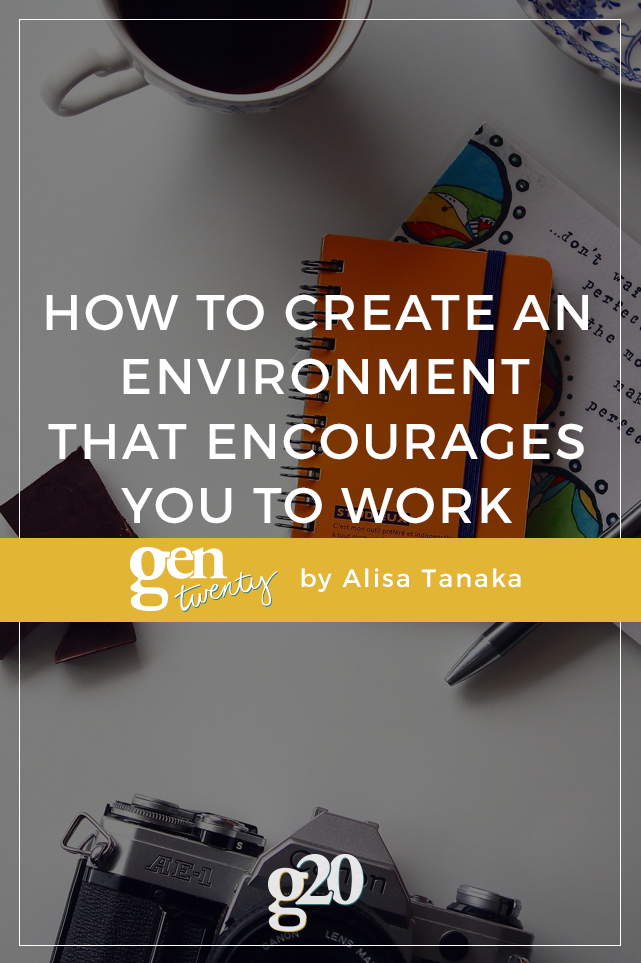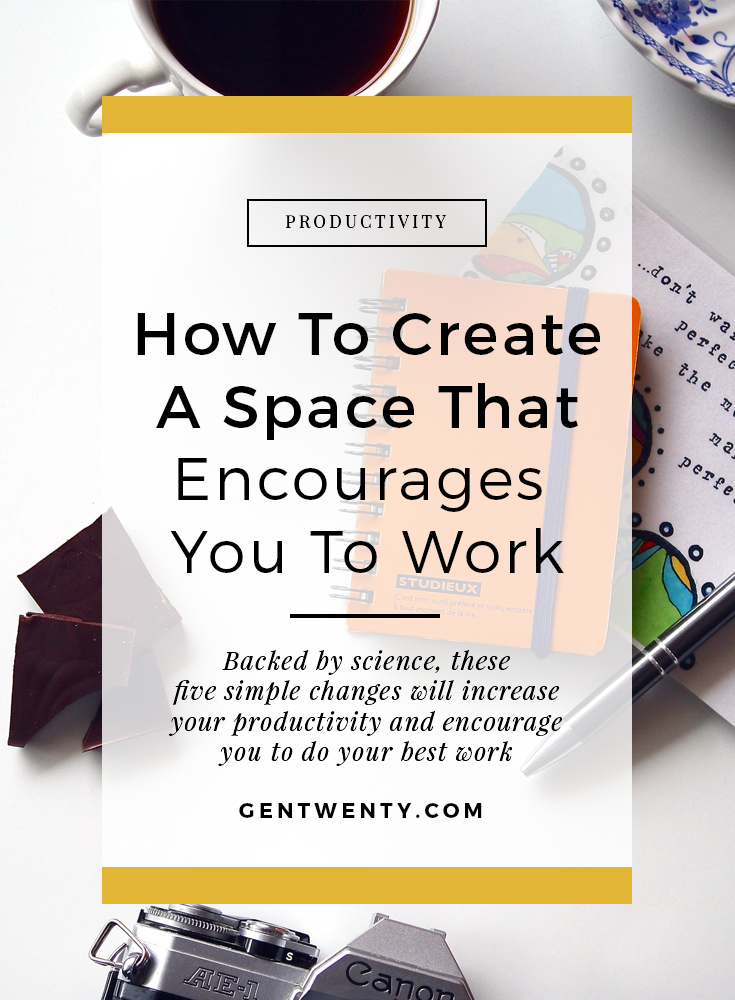
This should go without saying, but the environment of your workplace can have a huge impact on you and your ability to do your best work.
As twenty-somethings, it’s important that we produce high quality work, especially at our jobs, and your work environment is crucial to helping you accomplish that. Here are five ways you can create an environment that allows you to thrive at your job:
1. Know What Your Tendencies Are (& Work With or Around Them)
In order to create an environment where you know you will want to work, it’s important to take stock of where you work best, how you work best, and how to eliminate or minimize the things that distract you.
Ask yourself these preliminary questions to get a handle on it:
- Do you work best in total silence or do you need some kind of sound to stimulate you?
- Do you prefer to work alone or with a team of people?
- Do you work well in a fast-paced environment or do you work better at a slower pace?
- Do you prefer the bigger picture or smaller details?
- Do you enjoy not knowing what the next work day will bring? Are you flexible enough to adapt to it? Or do you know for certain that you need structure in your day-to-day work?
The answers to these questions can go a long way in helping you to create an environment that’s conducive to productivity, not just in your work schedule, but in your personal life as well.
When I was in college, I had a difficult time adjusting to the demands on my time. It wasn’t until someone I trusted pointed out my fondness for structure and worked with me to create a structured schedule that I began to regain control of my responsibilities.
The idea that I knew exactly what I’d be doing at any point during the day soothed me. I wouldn’t be pulled every which way by whatever came up or reacting to things the second they happened. Instead I would be steadily working, balancing my responsibilities.
Understanding how you work best allows you to make conscious choices in everything you do, which goes a long way when you’re trying to create or join an environment that you’ll thrive in professionally.
2. Change It Up
Everyone needs a change of scenery now and again, especially given the research that a sedentary lifestyle poses serious health risks. Using your lunch break to squeeze in a quick cardio session or taking quick breaks to walk around the office after you complete a few hours of work can help break up the monotony of your daily schedule.
My first full-time position was a remote one that came with its own rewards and challenges. Among the challenges of working from home were the lack of human interaction and my home itself. I had to learn to consciously (and physically) take myself out of my environment whenever necessary and complete my work somewhere else, like a nearby coffee shop.
Sometimes it was as simple as just seeing people around me and being in a different space with people who were working that would allow me to buckle down and get things done. Sometimes all it takes is changing one little thing in your environment that allows you to refocus on the task at hand.
3. Make Your Space Your Own
Let’s face it, no one wants to work in a space they find uninspiring. Personalize your space as much as possible. I find that having a colorful, personal workspace makes me want to start tackling the tasks I need to get done for the day.
I like to collect postcards from the places I’ve been or photos of my friends and family and put them on the bulletin boards on my wall. I also keep my goals in a place where I can look up and see them. For me personally, keeping a running list of my goals helps me to make conscious choices as I work toward getting things done.
Related: How To Create a Pinterest Vision Board
Keeping your space clean helps too. They say that a cluttered space is indicative of a cluttered mind, and there’s science to back it up. Make sure you’re comfortable in your space, and make sure that it motivates you to complete whatever tasks you need to complete to the best of your ability.

4. Turn Off Distractions
Yes, by distractions I mean your social media feeds. Other than turning off your notifications, I’m aware that you can’t really turn them off unless you make the conscious choice to not have an account at all (someone please correct me if I’m wrong), but it’s no secret that social media eats up a lot of time that you could be using far more productively.
One of my goals for the year 2017 (gosh, is it really 2017?) is to beat my addiction to all things Internet and learn to use my time far more productively. I recently listened to an episode of a podcast called The Science of Success, where an associate professor of computer science from Georgetown University recommended that people schedule their social media time so that you can focus for longer periods of time and complete high quality work.
5. Surround Yourself With Good People
There is a reason the age-old saying, “You are who you surround yourself with” has stuck. Spend enough time with them, and you’ll begin to adopt qualities and behaviors of the people you spend the most time with.
Use the science to your advantage and surround yourself with positive, inspiring people in order to push and inspire yourself to create an environment where you will succeed.
It can be challenging to create an environment that inspires you to work, regardless of where you are, but it isn’t an impossible feat. What encourages you to stay inspired to focus on your tasks?
[clickToTweet tweet=”How To Create An Environment That Encourages You To Work” quote=”How To Create An Environment That Encourages You To Work”]
